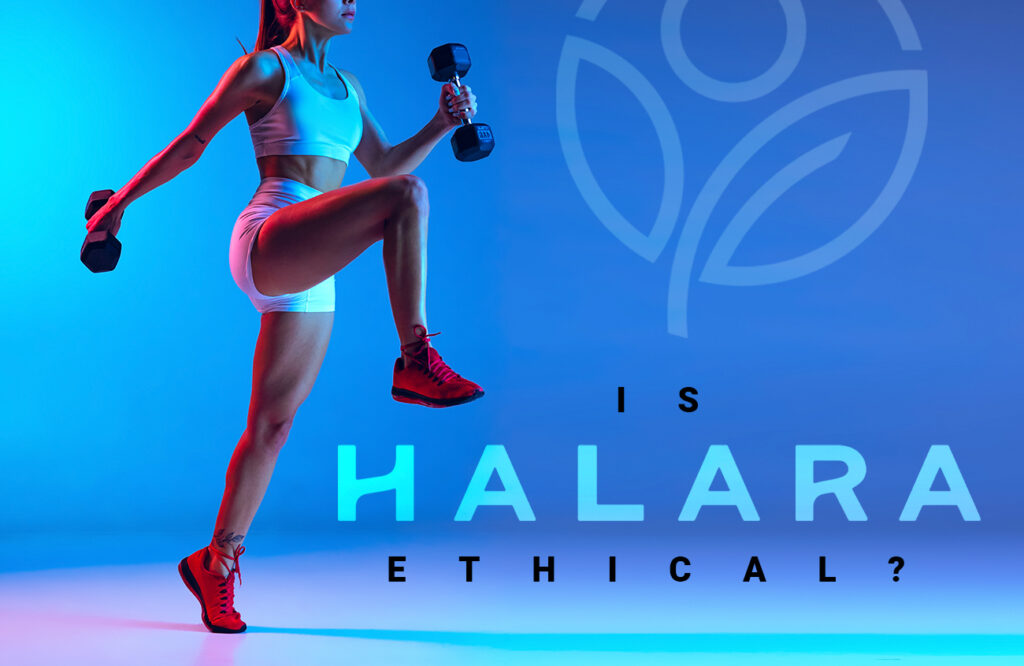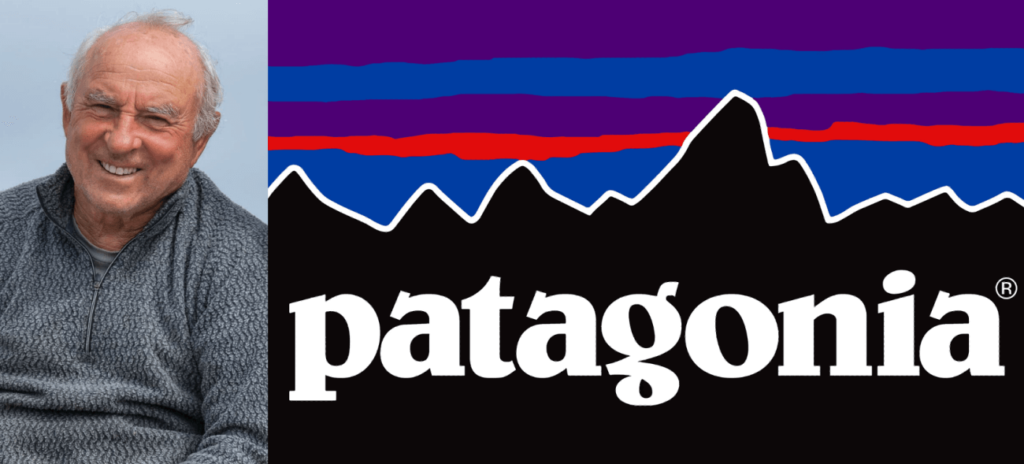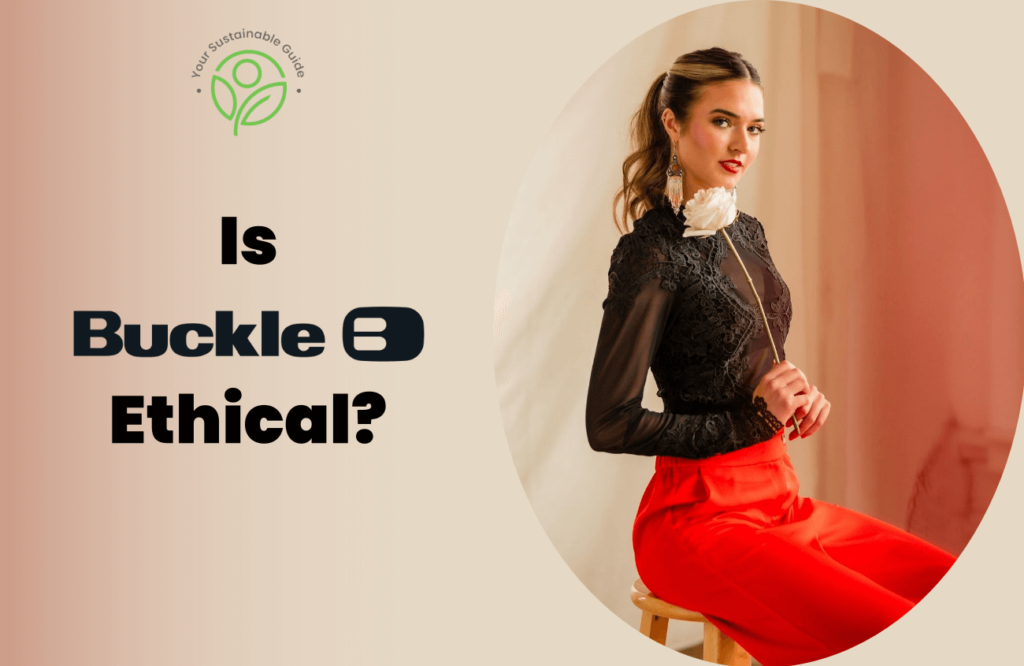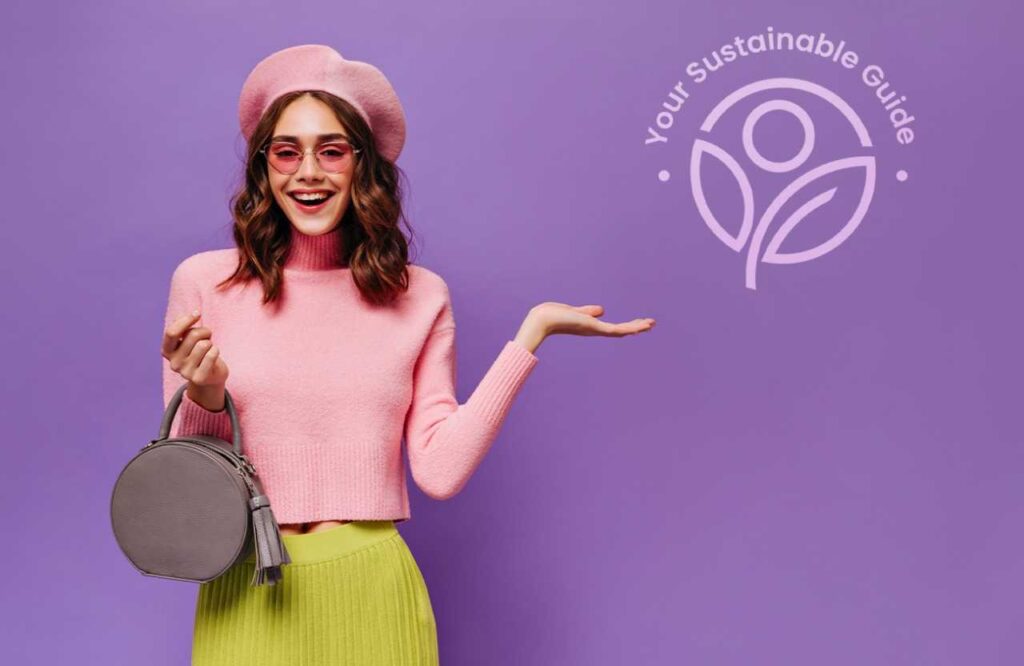Halara is the new Tik-Tok and Instagram-obsessed activewear brand that has been the talk of the town lately. Gaining fame from the TikTok reel’s “In My Feels” dress, it aims to encourage working out in style. But while the label claims to manufacture its garments in the best factories, it doesn’t share details about their exact locations. Also, it follows a fast-paced production model and gives discounts left and right. With such hush-hush around its operations, it remains to be seen if Halara is a fast fashion brand.
As a budding fast fashion label in the athleisure market, Halara heavily relies on virgin synthetic materials. It also has no plans to reduce its production levels, carbon emissions or water consumption levels. So what exactly is Halara doing to become sustainable? Or what is doing to verify that all of its garment makers receive fair pay and humane treatment? Let’s deep dive into Halara!
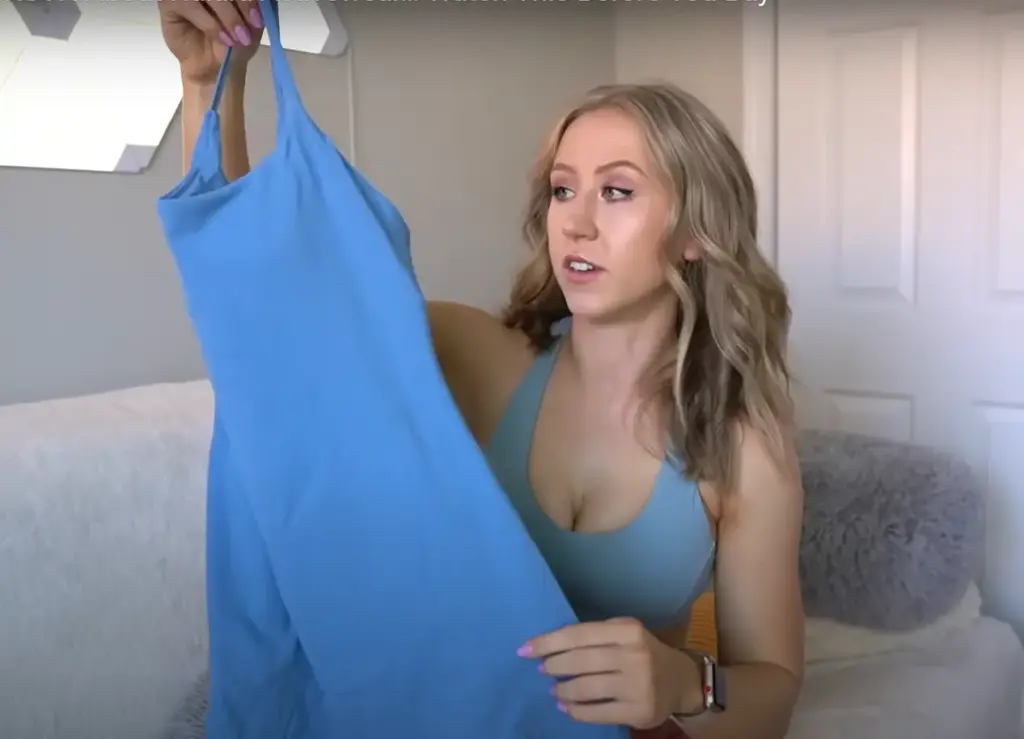
Is Halara Fast Fashion?
Yes, Halara is becoming the new face of fast fashion in activewear as it produces large volumes of athleisure apparel at a rapid pace with low pricing. And fresh peppy styles are dropped every couple of weeks. To top it all, discounts are a constant part of its site, tempting shoppers to shop more.
Halara’s strategy involves a speedy turnaround for new arrivals, producing ready-to-wear items in labor resource-rich countries with neglectful regulations. Plus, the label maintains silence around its factories. While its production scale doesn’t match fast fashion giants like Shein, H&M, or Zara, its practices closely mirror the concept of fast fashion.

Is Halara Ethical?
No, Halara is not ethical. While Halara promises its customers a healthy and fashionable lifestyle, it doesn’t promote healthy work ethics.
Labor Practices
Halara doesn’t share information about its factory locations and their working conditions. As the brand doesn’t have its own production units, its clothes are manufactured by East and Southeast-Asian partner factories. Unfortunately, Halara doesn’t even have a Vendor’s Code of Conduct which addresses labor rights policies.
The absence of such labor rights standards and details about its factories’ whereabouts raises doubts about an ethical supply chain. This approach further confirms the fact that none of its suppliers are Fair Trade certified. Unfair trade practices, minimum wages, and unsafe working conditions are the norm in such shady factories, often termed ‘sweatshops’. And sadly, Halara can be considered one of the brands that use sweatshops.
Sourcing Practices
Halara outsources production to factories set up in third-world countries like Vietnam, China, and the Philippines, where labor laws are almost non-existent. Plus, it doesn’t spill the deets about how it is helping and protecting its workforce communities. Just advertising to be a mindful brand isn’t enough because if you inquire about Halara’s ethical practices, you’ll find nothing on its website
Halara, this is for you! Every consumer has the right to know if their purchases are actually empowering the underprivileged working communities. So maybe it’s time to become more transparent.

Child Labor
It is hard to decide whether Halara engages in child labor or not. Its primary production units are uncertified and set up in developing countries where children often accompany their parents to work to earn a few extra pennies. And factories take advantage by employing minors as it helps to keep manufacturing costs down.
Clothing companies that use child labor also favor countries like Vietnam, the Philippines, and especially China because labor laws here are too lax. There is no policy against unfair trade practices or laws against the lack of minimum wages or employing minors. Since Halara doesn’t provide information about its overall labor policies, the possibility of including child labor can’t be ruled out.
Overall Rating: 1
Is Halara Cruelty Free?
Yes, Halara is cruelty-free. Since it is an athleisure brand, it primarily uses synthetic fibers like polyester, spandex, nylon, elastane, cotton, etc. For manufacturing activewear, there is no need for animal skin, fur, or other animal-based textiles. Therefore, it can be safely concluded that Halara is not exploiting animals for profit.
Overall Rating: 4
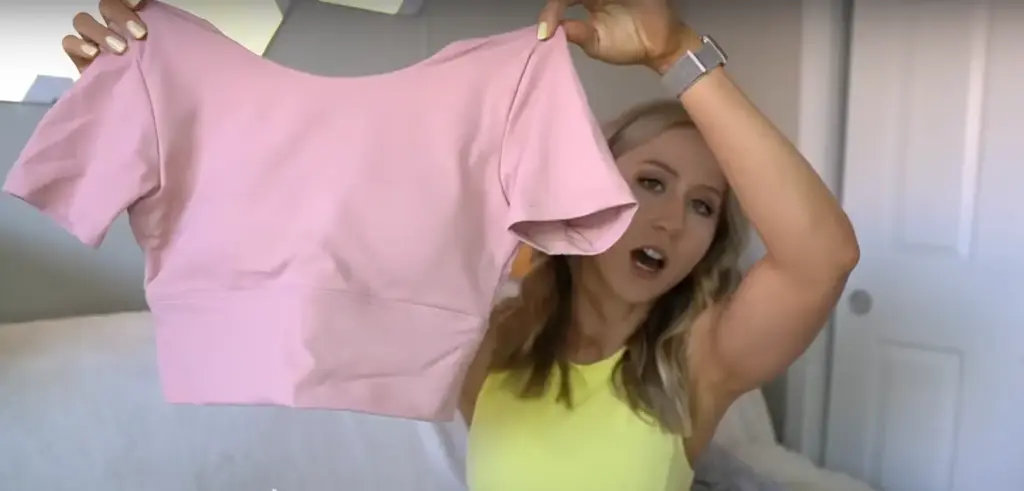
Is Halara Sustainable?
No, Halara is not sustainable. Like most activewear, its clothes are made of synthetic fabrics like polyester, spandex, and nylon. These fabrics are preferred for making athletic apparel because they have a longer shelf-life. Meaning, they can sustain the hardships of workouts or other physical activities for longer without wear and tear.
However, manufacturing these materials requires tons of finite resources like fossil fuels. Plus, their production processes involve large amounts of harmful chemicals and water while emitting massive CO2 emissions. All in all, it’s a dirty business that pollutes our ecosystem.
While the brand claims to work with global fabric developers, its athleisure is priced at super-affordable rates to entice consumers. It doesn’t even have any ‘Recycling or Repair’ policy for when the apparel is worn out. So, despite synthetic fabrics’ high energy consumption and chemical processing levels, Halara’s clothes will ultimately end up in landfills.
Halara doesn’t implement steps to control its textile waste. It also has no sustainability targets designed to reduce greenhouse gases and recycle wastewater throughout its supply chain. The environmental impact of fast fashion operations is already a pressing issue, and Halara doesn’t mind adding to it.
Overall Rating: 1
Some of the Best Sustainable Alternatives to Halara
Working on the self is important. Working on the self with consciousness and confidence even more so! Consciousness is avoiding fast fashion brands like Ted Baker, Buckle and Emmiol, and confidence is wearing the right attitude with the right clothes. That’s why we bring to you a list of ethical brands that follow up on the latest fashion trends while also manufacturing sustainable clothing.
1. Girlfriend Collective

Topping our list of sustainable activewear brands is Girlfriend Collective, which uses sustainable fabrics like recycled polyester and ECONYL! Their collection includes workout bras, shorts, leggings, tanks, etc., in an array of vibrant colors and gorgeous styles. Everything is produced in ethical SA8000 factories, and it also has a recycling platform, “ReGirlfriend”. Definitely an upper because its price range and size chart are accessible to everyone. Displaying models of every size and color, Girlfriend Collective gives us major community goals and sustainability at the same time.
2. Wolven

Wolven is passionate about making sustainable activewear fashionable! The female-founded brand crafts beautiful, dreamy-printed athleisure, focusing on diversity and body positivity. Using OEKO-TEX STANDARD 100 certified and recycled materials, it empowers women of all sizes and colors. As a BIPOC-owned label, Wolven is committed to various worthy carbon offset and give-back projects. Plus, it practices circularity through its Pre-loved platform, embodying responsible business practices. To give consumers a peek at its sustainability achievements, it also publishes annual impact reports.
3. MATE The Label

If you want to ‘Dress Clean’ then MATE The Label’s clean basics are not going to fail you. From sustainable sports bras to sweats and leggings— their collection is designed to support your favorite physical activities, including yoga sessions, workouts, and dancing. So from the gym or to the couch, you’re good to go! This conscious, woman-founded brand cozy yet functional essentials are produced through a circular production line. As a B Corporation, MATE highlights its ethical and sustainable standards through transparency around its fabrics and fair supply chain.
4. Pact

Pact envisions a world free from chemicals, sweatshops, and child labor—a world we desire too. The “Earth’s Favorite” clothing brand strongly believes that people and the planet’s well-being should always come before fashion. Their basics, made ethically with GOTS-certified organic cotton, are 100% Fair Trade certified. Offering classic styles in neutral colors, this label is the ideal spot for stocking up on cotton essentials like socks, underwear, and versatile leggings. So with Pact, you’ve got your hot yoga, morning run, or casual hangouts with friends sorted!

